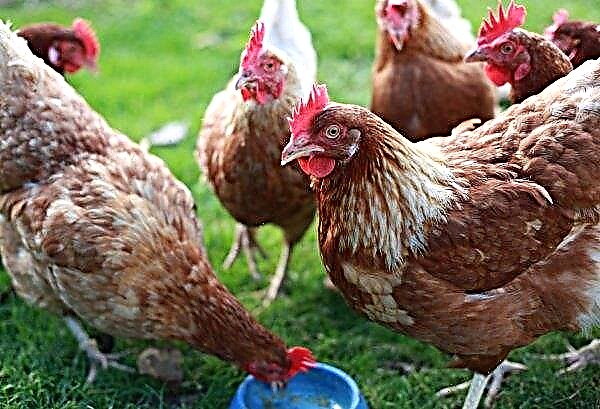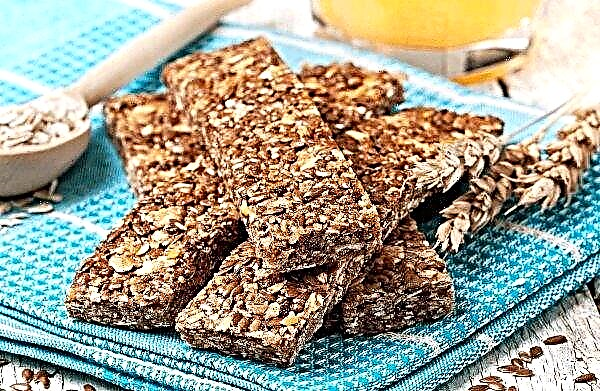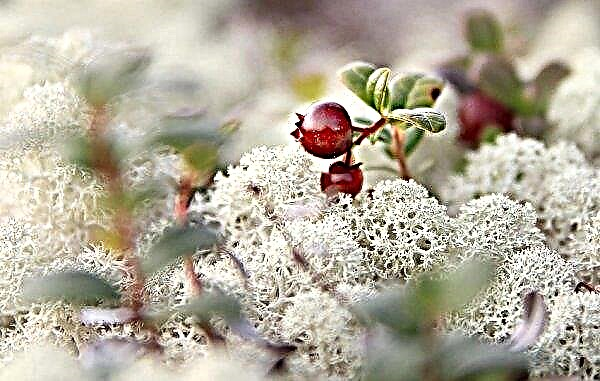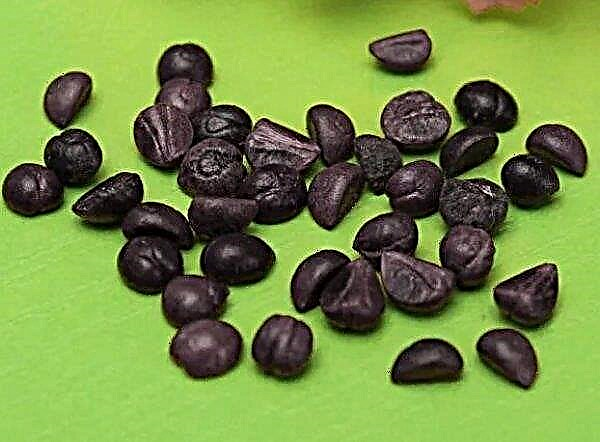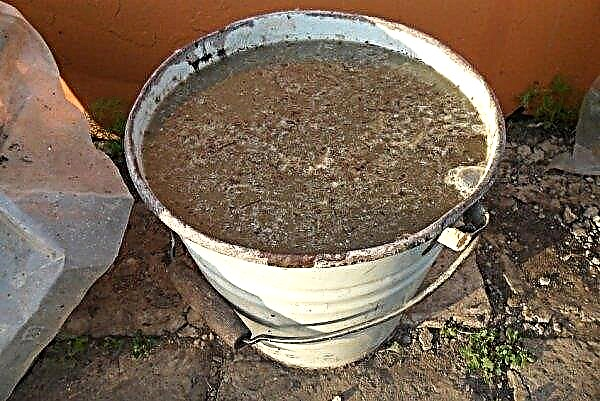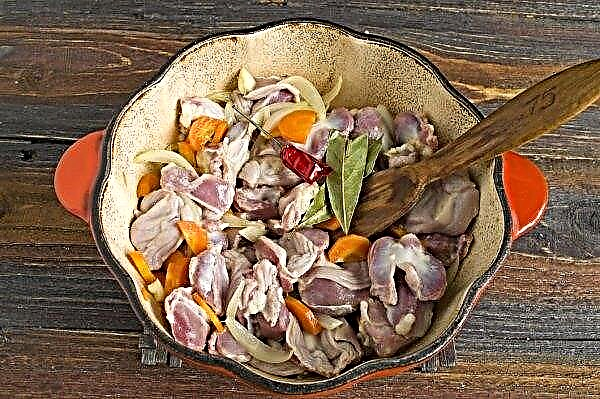If you do not live in a private house, but love quail meat, then the option of breeding them in a city apartment is for you. This method has become popular in recent years, as it is available to everyone and does not require investing a large amount of money.
Can quails be kept in an apartment?
In Japanese culture, quails are classified as birds that bring happiness and prosperity to the family, so you will not surprise anyone by their presence in the apartment. They are kept in cages just like we keep parrots, but the benefits of the former are much greater.
In our country it is still unusual to meet these birds in the apartment, but thanks to the usefulness of their eggs and meat, every year this practice is becoming more and more popular.
Did you know? Quail eggs contain vitamins and minerals, in addition, they lack cholesterol, harmful to human blood vessels.
Given that quails are unpretentious birds, then they can actually be raised in an apartment. The main thing is to provide them with the right diet and monitor sanitary conditions.
Why does the smell appear in the apartment?
Speaking of raising quail in the apartment, people are worried about the possible unpleasant smell and dirt that the birds create. Most believe that such an occupation will surely turn the apartment into a room with unsanitary conditions and a constant unpleasant odor. This is all true, but in part.
The main reason for the appearance of an unpleasant odor is the neglect of elementary rules for quail care and untimely cleaning of the litter box. It is enough to clean the cells daily, and in the summer season to equip them with an additional hood so that the unpleasant odor does not spread.
The use of cat litter for toilets is also effective, they absorb unpleasant odor and moisture.
Features odorless care and maintenance
Despite the simplicity of keeping these birds, there are recommendations to help avoid mistakes made by beginners in this matter, as well as create conditions for breeding quails, eliminating the unpleasant smell in the apartment.
How to choose good individuals?
An important component of the content of quail in an apartment environment is the choice of the correct breed of birds.
To do this, adhere to the following rules:
- the best option is to buy chicks 1–1.5 months old (at this age they will be able to move the house, adapt to a new place of life and are not so prone to diseases);
- pay attention to the appearance of the birds: there should be no growths on the beak or paws, feathers are smooth and free from defects;
- chicks should be active, with a good appetite;
- in old birds, the beak has a curved and blunt shape, you do not need such birds. Choose only young ones with a sharp and straight beak.
 The breed of quail is also important. Most often for home breeding use Japanese quail, which is completely capricious. The main advantage of this breed is that females, unlike males, do not scream. Therefore, if the breeding goal is not worth it, you can buy only females and not create too much noise for neighbors.
The breed of quail is also important. Most often for home breeding use Japanese quail, which is completely capricious. The main advantage of this breed is that females, unlike males, do not scream. Therefore, if the breeding goal is not worth it, you can buy only females and not create too much noise for neighbors.Important! The remainder of the feed in the feeders is an ideal place for the reproduction of harmful bacteria, so it must always be taken.
Basic quail requirements
Before you start breeding this bird at home, you need to make sure that you can provide them with everything necessary for a comfortable life and reproduction.
To do this, you should familiarize yourself with the basic requirements:
- it is necessary to purchase a special cell battery, if the number in the cage exceeds 50 birds;
- it is possible to place the cage on the balcony, provided that it is insulated, as well as the possibility of drafts;
- Avoid placing the cage in the bright sun, this creates additional stress for the birds. The best is a place with dim lights;
- the presence of a special cage that contains a litter tray, and is also able to provide comfortable living conditions for the bird;
- it is necessary to provide quails with a quiet place, since constant noise from cars will lead to a decrease in their egg production;
- providing birds with regular feeding and drinking water (interruptions in the diet cause additional stress and affect the number of eggs received).

Conditions of detention
For good performance, quail requires the creation of certain conditions, namely:
- air temperature should be 18-22 degrees above zero;
- humidity should not be lower than 50%;
- daylight hours should be 17-18 hours, this is achieved by using conventional lamps;
- nutrition should be regular and complete, about 30 g of feed for each quail;
- free access to clean water should be provided;
- to provide constant ventilation of the room, but without drafts;
- if you plan to keep the birds on the balcony, a closet where you can put cages is suitable for this purpose.
Did you know? Quail eggs contain therosine, which helps maintain a healthy complexion, so they are used to make cosmetic creams and shampoos.
Cell arrangement
An important component is the proper arrangement of cells - they must be equipped with the following elements:
- the bottom is made of mesh, under which a litter tray is installed. It must be cleaned daily. The pallet must be filled with a mixture that will not allow an unpleasant odor to spread;
- for breeding quails, cages are made 30x40x25 cm in size to accommodate 4 females and 1 male. Otherwise, the cells are made depending on the future number of individuals;
- you need to install bunker feeders and drinking bowls in sufficient quantities;
- for hens, 85 cm2 are needed. space, while for brood stock - 125 cm2;
- ceiling height should be no more than 30 cm;
- a special inclined tray is created for eggs;
- it is necessary to provide for the possibility of establishing partitions in the cells, if necessary.

Bird care
Caring for quail is easy, but it requires regularity. You should not allow to break the nutrition schedule, as any stress will affect the performance of birds. You must also ensure that a comfortable temperature, humidity and drafts are maintained.
When caring for quails, a prerequisite is daily cleaning of the litter box, so as not to create unsanitary conditions that will lead to a number of fatal diseases.
Feeding
Equally important in preparing for the breeding of quail is the choice of feed. You can cook it yourself or buy a ready-made mixture that is suitable for beginners in this field.
Adults
To prepare the feed, it is necessary to grind wheat, soy and corn. As an additive, use fishmeal or fat, vegetable oils, vitamins and minerals. As a ready-made mixture, food for laying hens is usually used. The basic rule is not to overfeed, as this reduces the egg production of quail.
Regardless of which food you use, the following supplements are also needed:
- calcium, which is obtained from chalk, eggshell and lime;
- green onions, sprouted wheat, boiled potatoes;
- waste from vegetables;
- various kinds of insects, such as worms, snails and spiders;
- nettle, dandelion, Jerusalem artichoke.

Chicks
After hatching in an incubator, no more than 12 hours must pass before the chicks receive the first portion of food. An ideal option for their feeding is a specialized feed for broiler chickens, which must be ground to a size of no more than 2x2 mm.
If it so happened that you could not get it, then just rub the yolk of the quail egg through a sieve. You can take a chicken egg, but this will increase the risk of contracting a disease.
After 4-6 days, you can begin to give finely ground wheat or rice. It is also not superfluous to add chopped cooked fish, cottage cheese or onion greens to the nestling diet. In the second week, you can diversify your diet by adding crushed egg shells, chalk, lime. After a month, you can switch to feeding an adult bird.
Important! You can’t give the chicks a whole grain of barley or oats, it is sharp enough to damage the stomach and lead to death.
Disease prevention
Like any poultry, quail are susceptible to disease.
Common are:
- ornithosis;
- Newcastle disease;
- pullorosis;
- colibacillosis;
- aspergillosis;
- helminthiasis;
- pasteurellosis;
- salmonellosis.
 So that the birds do not get sick, it is necessary to carry out preventive measures:
So that the birds do not get sick, it is necessary to carry out preventive measures:- clean the litter box once a day, twice a day in the summer;
- regularly clean the feeders and drinking bowls from dirt, regularly refresh the water;
- do not keep quails of different ages together;
- monitor the cleanliness of the cell and the room in which they live;
- use only quail eggs to feed the chicks, not chicken.
Given that these birds are rather timid, they are easy to scare. Even sharp movements can lead to fright, as a result of quailing it will make a sharp jump up and can be injured on the ceiling of the cage. To avoid this, you need to use a fishing net, which stretches a little below the ceiling.
Additional recommendations for beginners
Beginners have many questions, especially when it comes to breeding birds.
For convenience, we have collected the best recommendations:
- there should always be a supply of food for the birds, so that inadvertently there are no problems with the diet, interruptions will cause birds stress;
- unnecessarily, one should refrain from picking up birds;
- do not use paper or newspaper as a litter, as their legs can move apart;
- make sure that the room in which the quail is kept is always dry and ventilated;
- lighting should not blind the birds or be too bright;
- every week it is necessary to give quail an opportunity to swim in the sand, so they get rid of parasites.
 Breeding quails involves a lot of time, money and effort, but the benefits you get from their meat and eggs will justify your efforts. The main thing is to follow the rules for caring for them and create comfortable living conditions, for which you will receive fresh quail eggs daily as a reward.
Breeding quails involves a lot of time, money and effort, but the benefits you get from their meat and eggs will justify your efforts. The main thing is to follow the rules for caring for them and create comfortable living conditions, for which you will receive fresh quail eggs daily as a reward.


